Nonprofit Spotlight: Friends of the Arboretum
Posted by Samantha Haas on Thursday, June 17th, 2021 at 8:36pm.
Madisonians looking for relief from the hustle and bustle of city life don’t have to travel far to become immersed in nature at the University of Wisconsin-Madison Arboretum, spanning a whopping 1,200 acres from the southern shores of Lake Wingra to beyond the Beltline.
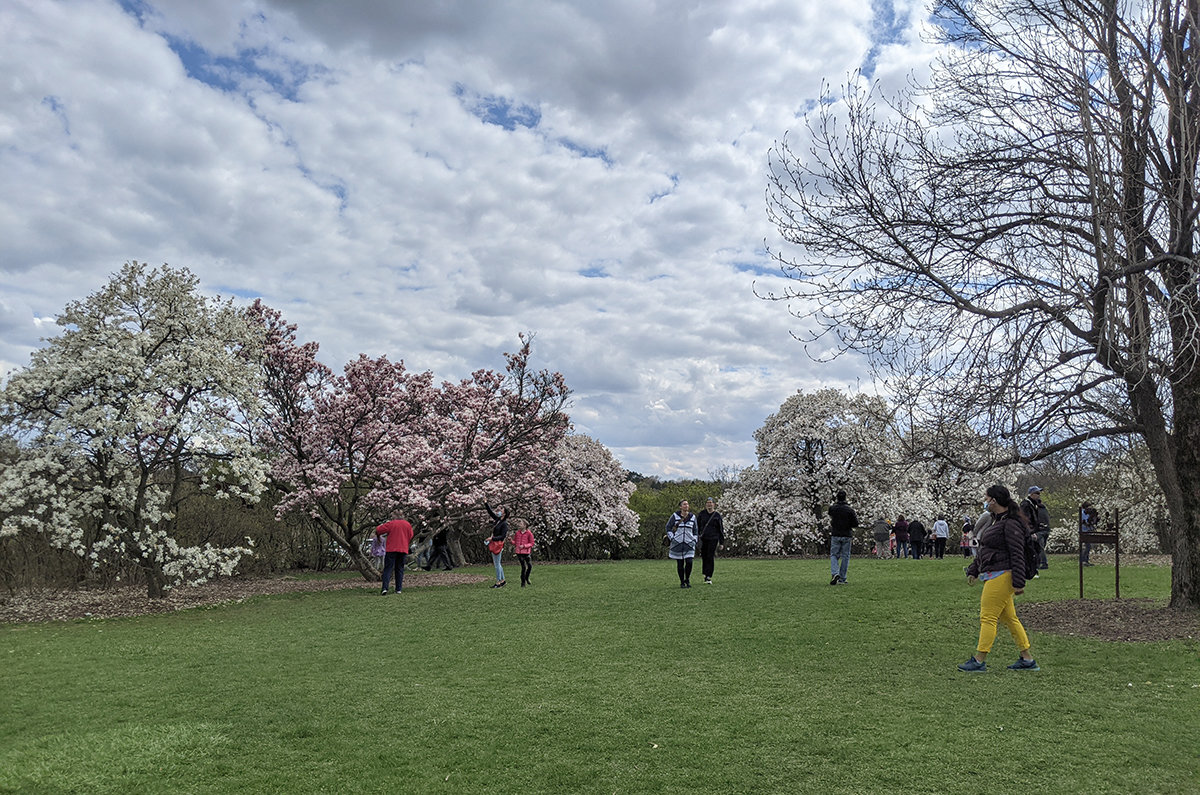
This beautiful oasis, which occupies ancestral Ho-Chunk land, offers an unparalleled visitor experience for users of all ages. Whether you enjoy learning about restored ecosystems (the Arboretum manages the oldest restored prairie and offers family nature programs and children’s day camps), hiking the network of trails (more than 17 miles wind through restored prairies, savannas, woodlands, and wetlands), biking or running the 3-mile scenic paved drive, or watching the birds and other fauna and flora throughout the seasons (the gardens feature trees and shrubs of the world and represent the state’s largest woody plant collection), there is something for everyone.
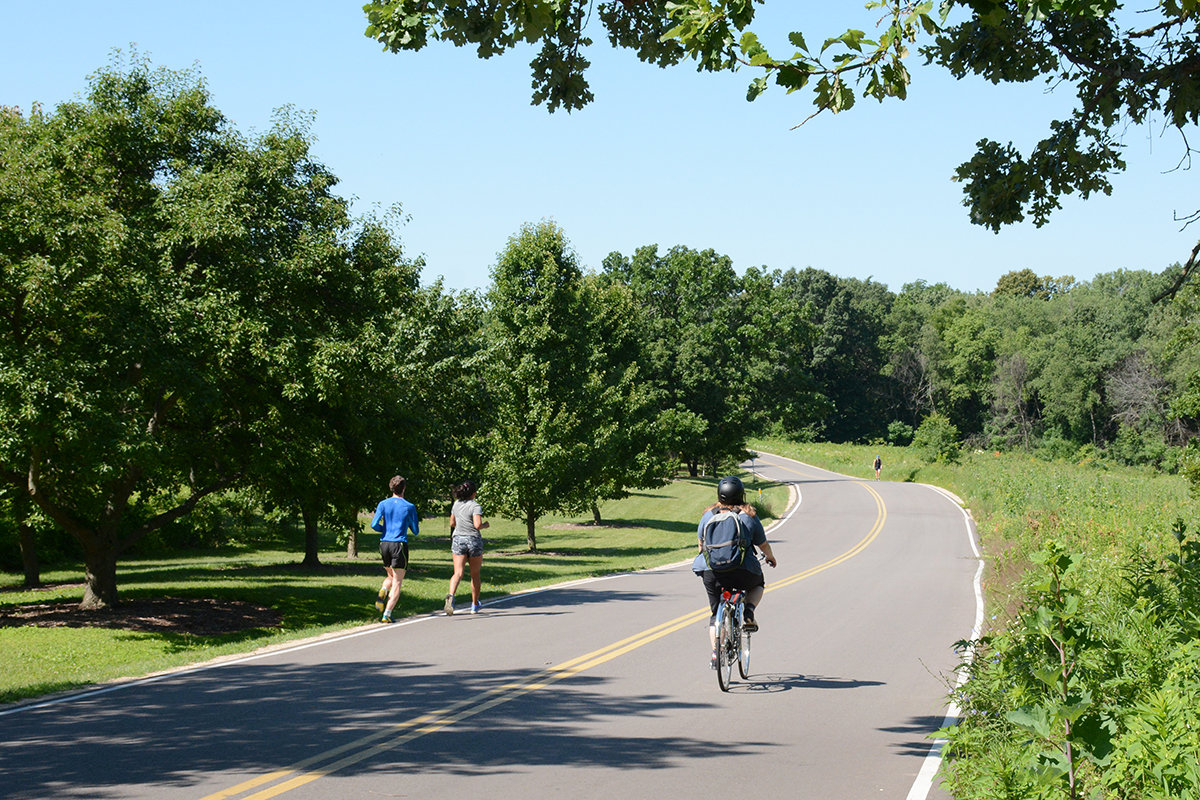
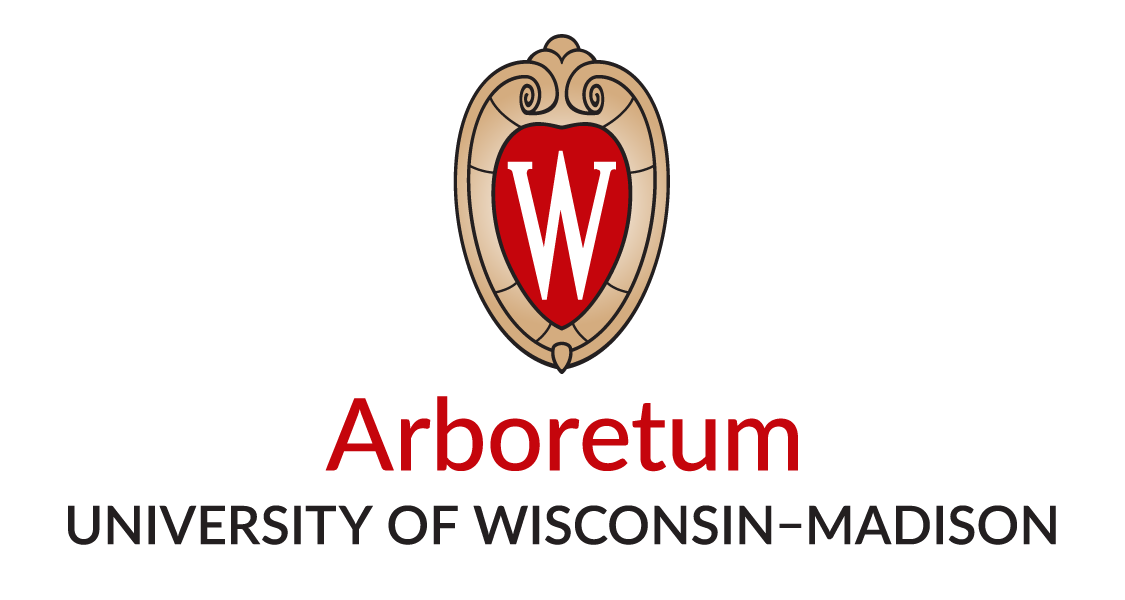 Formally dedicated in 1934, this gem wouldn’t have grown to the incredible resource it is today without the funding and strong network of volunteers represented through both the UW Arboretum (Arb) and Friends of the Arboretum (FOA, an independent nonprofit) -- whose missions are intertwined. Established in 1962, FOA continues to build positive relationships between people and the land to support the Arb’s work and mission to conserve and restore Arboretum lands, advance restoration ecology, and foster the land ethic inspired by Aldo Leopold.
Formally dedicated in 1934, this gem wouldn’t have grown to the incredible resource it is today without the funding and strong network of volunteers represented through both the UW Arboretum (Arb) and Friends of the Arboretum (FOA, an independent nonprofit) -- whose missions are intertwined. Established in 1962, FOA continues to build positive relationships between people and the land to support the Arb’s work and mission to conserve and restore Arboretum lands, advance restoration ecology, and foster the land ethic inspired by Aldo Leopold.
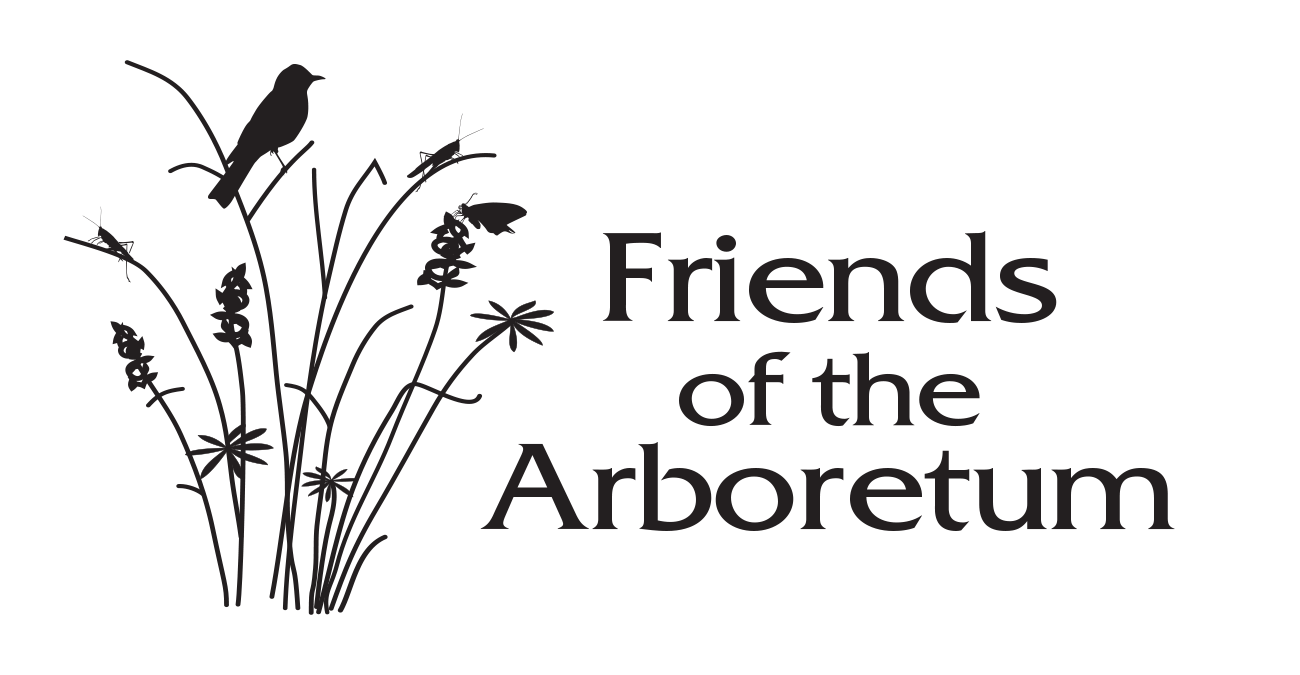 Although volunteerism has been limited by the pandemic, the Arb traditionally offers opportunities for individuals, families, and groups that match their interests, skills, and schedules: from gardening and ecological restoration projects to steward, naturalist, and citizen science positions. Additionally, when the visitor center reopens there will also be a need for receptionists, bookstore clerks, and greeters. FOA also recruits volunteers for its fundraising events: the Native Plant Sale (held annually around Mother’s Day since 1990) and the Luncheon-Lecture series with well-known speakers (offered several times a year since 1982). FOA also looks forward to bringing back its field trips to natural areas such as outlying Arboretum properties throughout the state.
Although volunteerism has been limited by the pandemic, the Arb traditionally offers opportunities for individuals, families, and groups that match their interests, skills, and schedules: from gardening and ecological restoration projects to steward, naturalist, and citizen science positions. Additionally, when the visitor center reopens there will also be a need for receptionists, bookstore clerks, and greeters. FOA also recruits volunteers for its fundraising events: the Native Plant Sale (held annually around Mother’s Day since 1990) and the Luncheon-Lecture series with well-known speakers (offered several times a year since 1982). FOA also looks forward to bringing back its field trips to natural areas such as outlying Arboretum properties throughout the state.
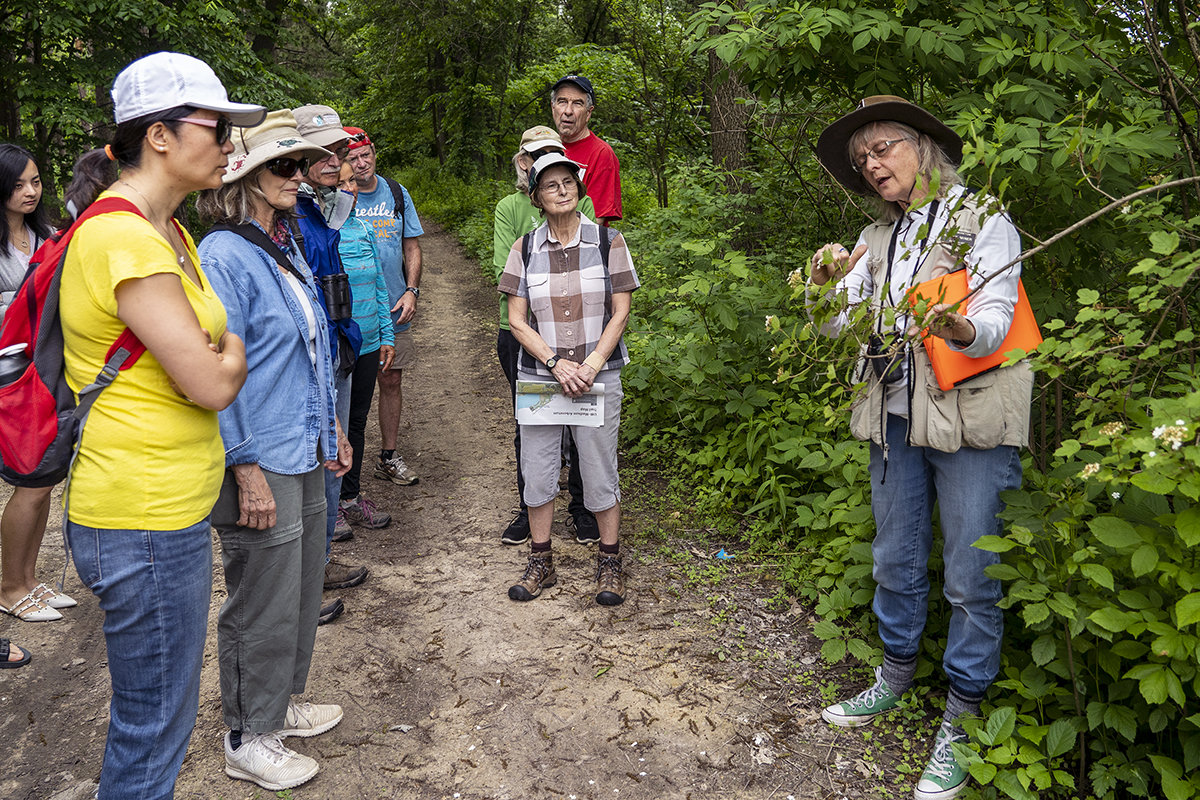
The Native Plant Sale (NPS) is FOA’s largest fundraiser and outreach event. “Those funds are something the Arb can use to direct as they see fit, so they have more flexibility and freedom than with funds that come from the University and state government,” said Karen Deaton, a longtime volunteer and “native plant nut” who also retired this year after serving as the NPS Coordinator since 2016. Funds from the sale have supported capital projects such as the native plant demonstration gardens around the visitor center over 20 years ago, as well as paid for student rangers who look after the trails and enhance the visitor experience.
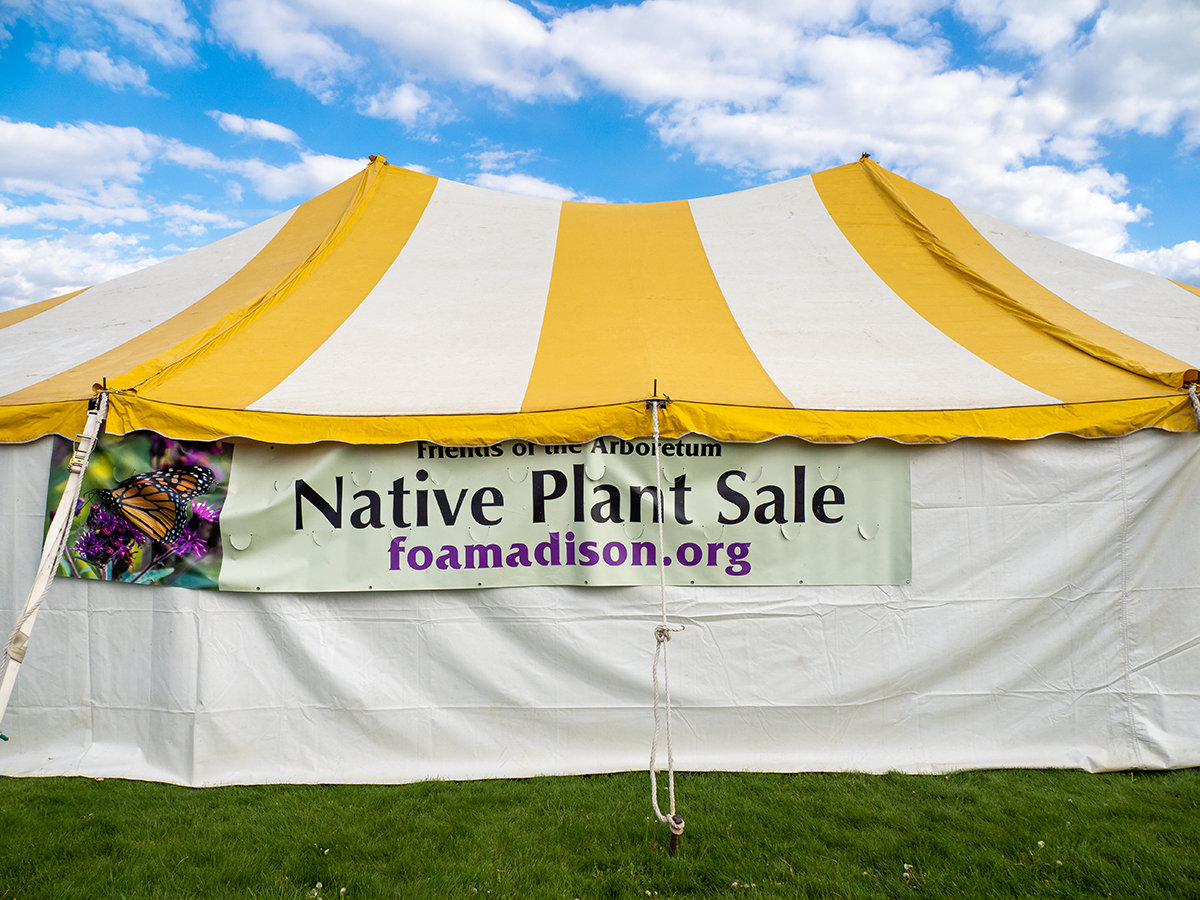
In addition, the visitor center’s new solar panels “couldn’t have happened without the Friends’ initial gift,” said Karen Oberhauser, who has been the Director of the Arboretum for four years and previously worked as a Monarch butterfly conservation biologist. “We’re working on a lot of areas of sustainability inside and outside to make our visitor center mirror the care we give to our land, building partnerships with campus programs, advancing research projects, and educating people about how to have pollinator-friendly lawns and gardens.”
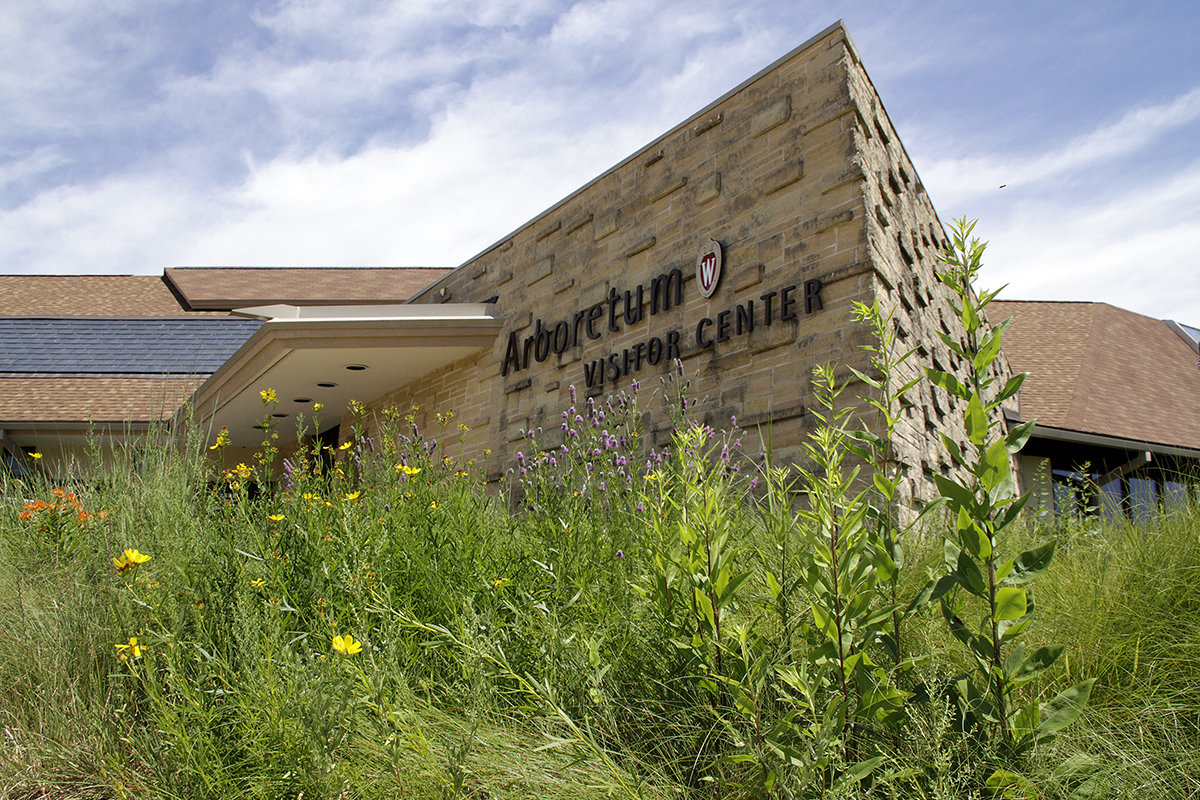
Prevalent herbicide and pesticide application isn’t the only problem facing the health of our native plants, pollinators, and ecosystems, which is why the Arb and FOA stress the importance of education. There’s also invasive species to deal with, such as garlic mustard, buckthorn, some species of honeysuckle, and Dame’s Rocket (its four petals and alternate, toothed leaves are often confused with phlox which has five petals and opposite, untoothed leaves). “But it’s not a lost cause by any means,” said Mary Chandler, the new NPS Coordinator who has a background in botany, water resource management, and wetland restoration. “We (humans) brought them here; we can remove them.” To do so before invasive species outcompete the natives requires the work of many hands.
Another invasive species that damages our local environment is the Asian jumping worm, and NPS has taken steps to prevent its spread. “Gardeners used to be able to donate plants for the sale, but now everything is nursery grown to ensure the soil is free of jumping worms and their cocoons,” said Deaton, citing McKay Garden Center in Oregon and Agrecol LLC near Evansville as recent vendors.
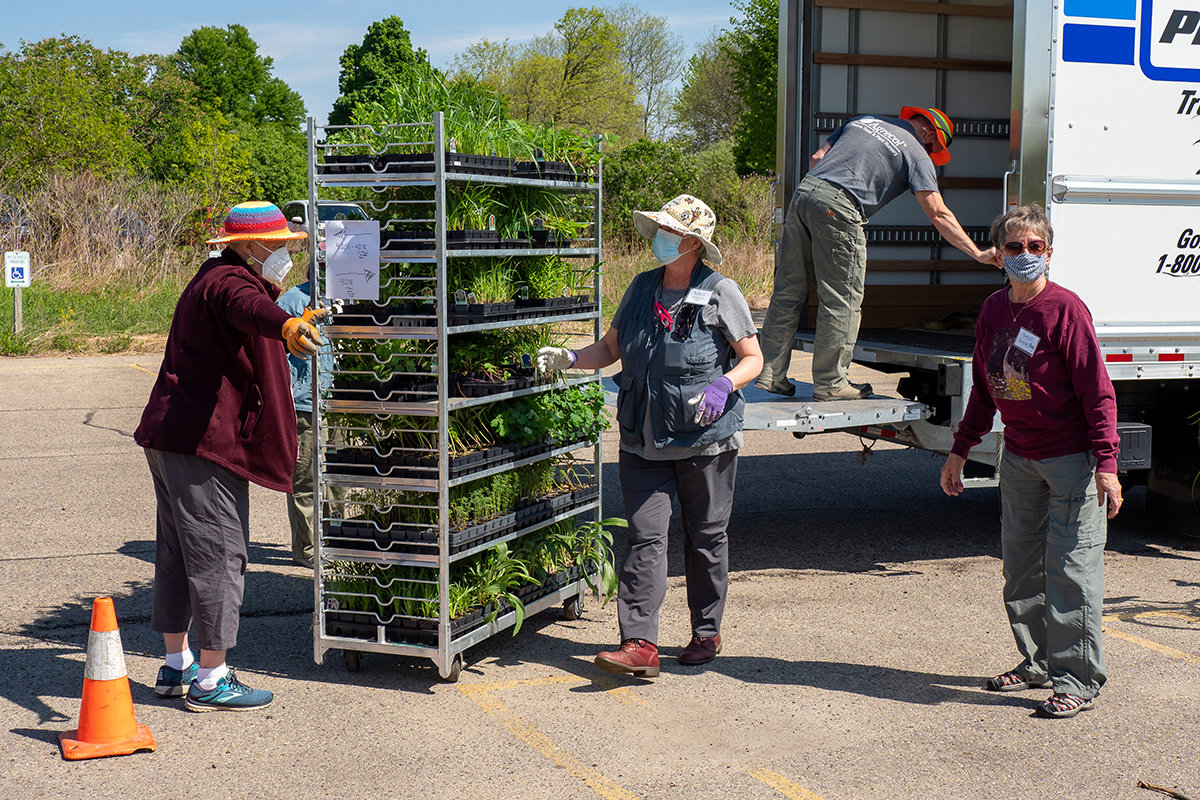
Months of planning and preparation go into the NPS, which had to quickly shift gears because of COVID precautions. The walk-up tent sale was suspended for the first time in 2020. In 2021, online orders were accepted for the first time and all plants had to be ordered in advance for curbside pickup. Deaton said in the past, only about 150 people placed orders in advance and about 1,000 people participated in the one-day walk-up tent sale, but this year with the FOA’s new webstore she received 780 advance orders. That increased the number of plants sold from about 13,000 plants in recent years to about 20,000 this year, which necessitated extra pick-up and delivery days.
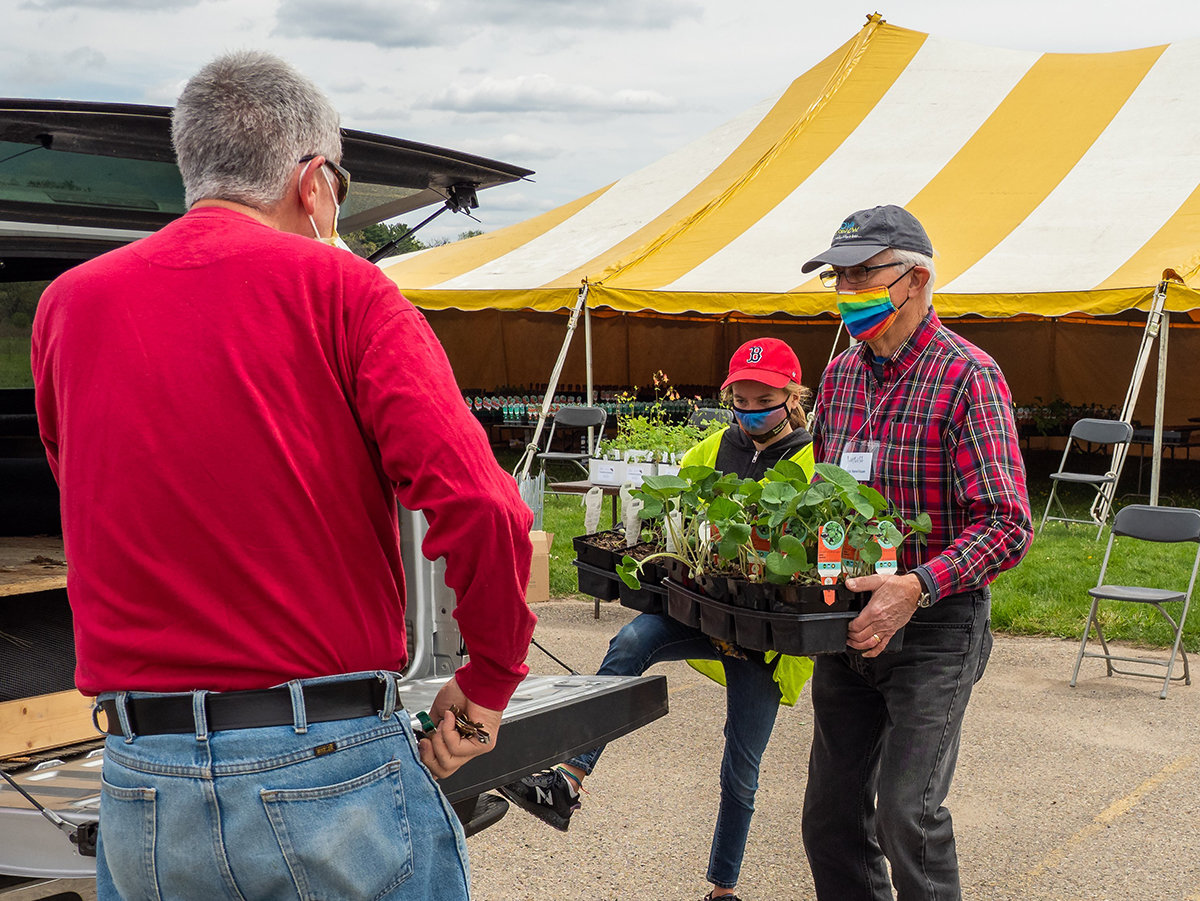
As a first-time NPS volunteer this year, I was impressed by the event coordination to safely and swiftly get customers through the drive-through line with a trunk full of native plants. And now I’m also on the lookout for bees, butterflies, and hummingbirds near the pollinator garden kit I purchased to plant in our backyard. Chandler said it’s best to choose local plant species for your yard like the ones sold at the NPS, “because the plants are preadapted to our climate, the use of pesticides/herbicides is sometimes eliminated, and there is very little watering needed. In all respects, when you plant native species you’re supporting the environment and other flora and fauna like pollinators, which benefits the community at large.”
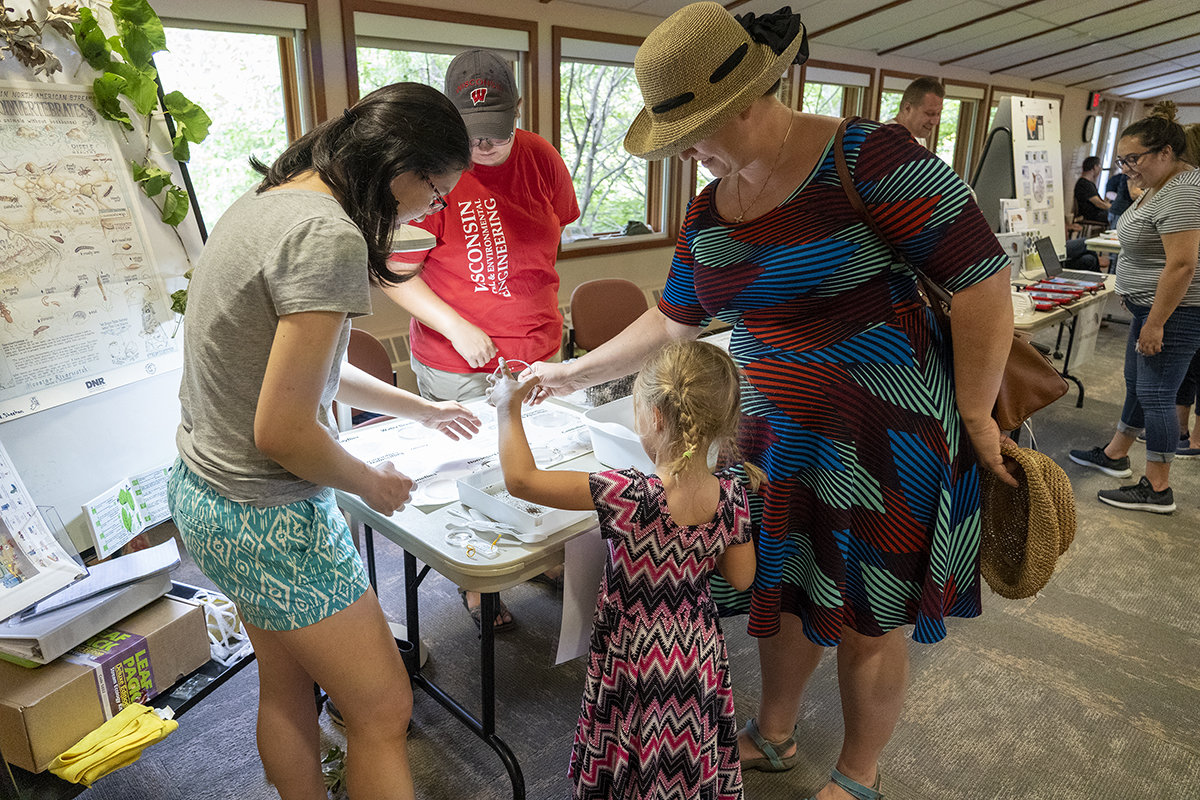
The NPS is often someone’s first introduction to the Arboretum and its volunteer opportunities, said Erica Lee, a lover of natural history who joined the Arboretum in 2018 as the Development Specialist. “In the last two years, for the first time ever, the money raised from individual donations surpassed state funding, which is largely due to the Friends group and the work they do to support us. Karen (Oberhauser) and I say this all the time: it’s an absolute pleasure working with the impressive, dedicated, and hard-working volunteer board of directors with the Friends of the Arboretum.”
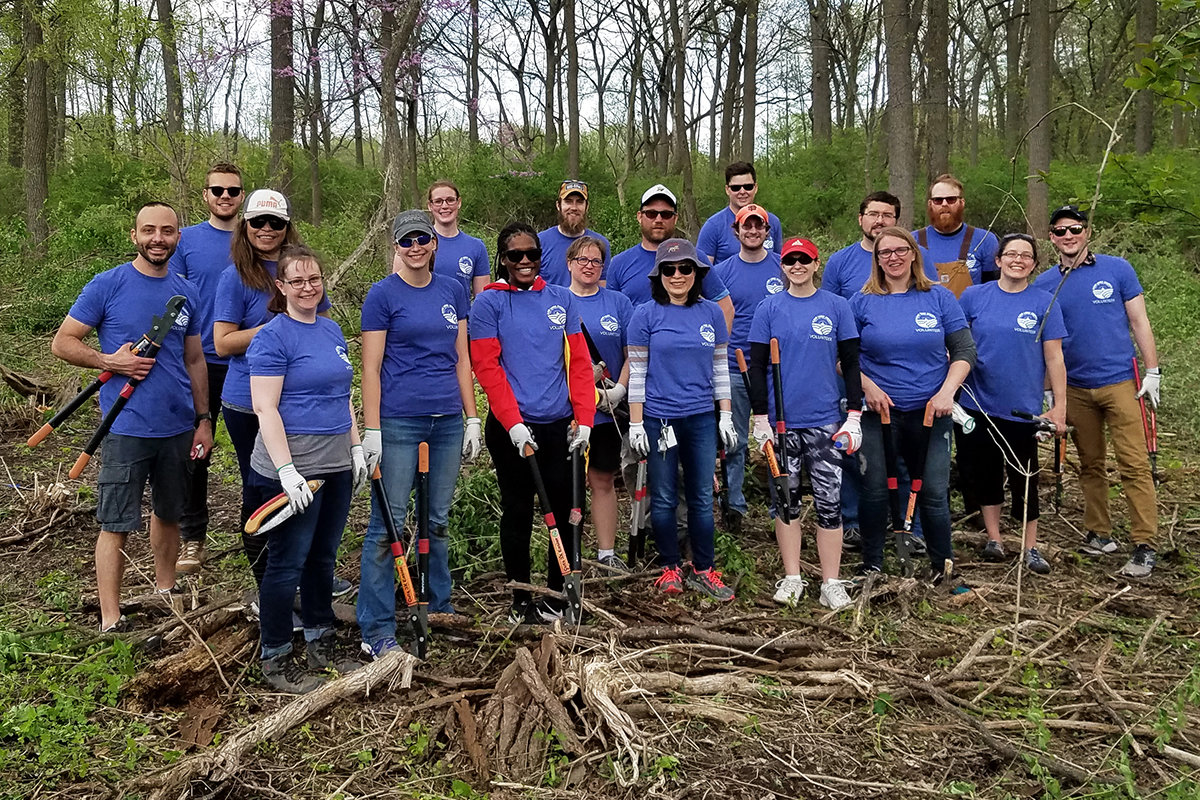
If you donate to become a Friend (suggested levels start at $70), you’ll receive early registration for FOA events, a discount at the Native Plant Sale (advance orders typically run from Jan. 1-March 15), and a quarterly newsletter with announcements and calendar of events. Regardless of the amount you choose to give, donations to FOA are tax-deductible and always appreciated. Learn more about supporting FOA at arboretum.wisc.edu/get-involved/friends/. Stay informed about the Arboretum by subscribing to the Arboretum’s monthly e-newsletter. When you visit the Arboretum, please respect the guidelines described here arboretum.wisc.edu/visit/etiquette/, which include staying on trails and leaving your pets, hammocks, drones, and picnic baskets at home.
Photo Credits:
- People visit the Arboretum in record numbers when the magnolias and other flowering trees bloom in spring. Photo by Samantha Haas.
- Runners and bicyclists enjoy the quiet Arboretum Drive. Photo by Samantha Haas.
- Naturalist Kathy Miner leads a walk through the Grady Tract. Photo by Heidi Neidhart / UW–Madison Arboretum.
- Friends of the Arboretum Native Plant Sale tent and banner. Photo by Bob Jaeger.
- UW–Madison Arboretum Visitor Center. Photo by Susan Day / UW–Madison Arboretum.
- Friends of the Arboretum Native Plant Sale Coordinator Karen Deaton and volunteers unload a truck of plants during the 2021 sale. Photo by Bob Jaeger.
- Friends of the Arboretum Native Plant Sale volunteers help with curbside pickup during the 2021 sale. Photo by Bob Jaeger.
- UW–Madison Arboretum citizen science open house in 2019. Photo by Heidi Neidhart / UW–Madison Arboretum.
- UW–Madison Arboretum work party with Clean Lakes Alliance volunteers. Photo by Marian Farrior / UW–Madison Arboretum.
